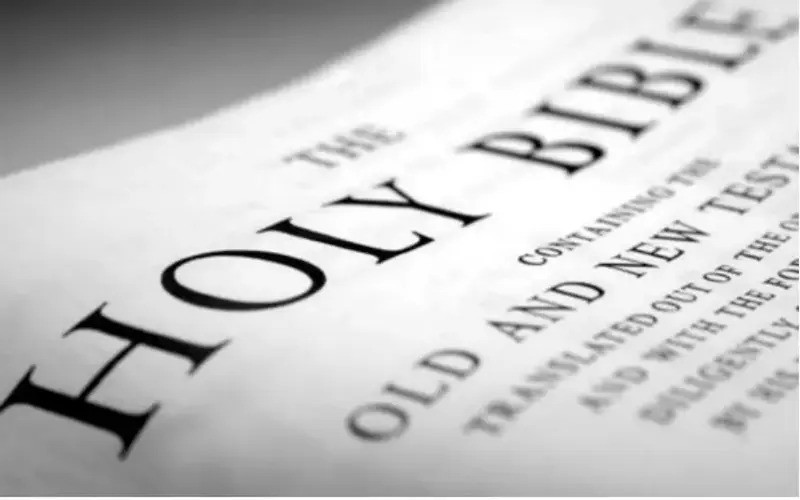Bringing the Bible to Public School Students
Sign up for a six month free
trial of The Stand Magazine!
(Digital Editor's Note: This article was published first in the August 2023 print edition of The Stand.)
“Less than 20% of kids attend church regularly, but over 90% attend public school,” said LifeWise Academy founder and CEO Joel Penton.
After learning those statistics, Penton knew he wanted to assist in spreading the good news of the gospel to students across America. In 2019, he founded LifeWise Academy. LifeWise is an offsite, privately funded school program that uses “released time” laws and a Bible-based curriculum to teach students the truth of the Bible. The weekly program is conducted during school hours, and students may register for LifeWise instead of other school-supported elective courses.
Today, LifeWise serves nearly 15,000 students across four states, and it is confirmed to serve more than 260 schools across 10 states next school year. In a recent interview with The Stand, Penton explained LifeWise’s mission, successes, and his hopes to see it spread nationwide.
The Stand: Why is it important to have religion in school?
Joel Penton: We simply cannot produce well-rounded students without religious instruction. When we removed religious education from public education, we eliminated a key piece of our humanity from the schools. And the evidence is unequivocal: When we reinstall religious education during the school day, schools and students begin to thrive – in academics, in character, in mental health, and through enhanced community support.
TS: How does LifeWise teach the Bible during school hours?
JP: LifeWise Academy is a released time religious education [RTRE] program, which is the practice of students being released from public school [instruction] during school hours to receive religious instruction. Sometimes people hear this and think it sounds made up or illegal.
The Supreme Court ruled on it in 1952. They outlined that it is constitutional if the program is off school property, privately funded, and with parental permission. However, it has not been widely known or much practiced in the last 70 years.
TS: How did prior RTRE programs impact LifeWise?
JP: We were inspired by a released time program that started in my hometown of Van Wert, Ohio. In Van Wert, they started a program and hoped to have 30% of students attend because that’s how many kids attend church in that area. But to their surprise, in year one, 60% of kids signed up. By the third year, 95% of the entire student body was enrolled in the course.
In 2018, they came to me and told me about this amazing program and that the Supreme Court protected it. Van Wert leaders explained that there are 26 state laws concerning it. … That’s when I went to work and discovered that the concept is simple, but the execution is not.
There are many entry barriers because you basically have to start a private school to get LifeWise off the ground. We [decided to] try to remove these barriers and create a program that any community could implement. In 2019, we launched two pilot programs, and today, we’re serving more than 130 schools with more than 260 schools confirmed for the [2023-2024 school] year.
TS: What do students learn at LifeWise?
JP: Our curriculum takes students through the entire Bible, Genesis through Revelation, over five years. They start in first grade in Genesis and study through. We have one-, two-, three-, four-, and five-year tracks. [For example,] if you’re in primary school and serving grades one through three, then you can use the three-year track that still goes through the whole Bible, but it’s only over three years, so it’s more like hitting the highlights.
Every lesson has a three-fold focus – head, heart, and hands. For head, we review the information and the Bible story.
Heart covers questions connecting the bigger picture of the gospel message to the gospel story of the Bible. How does it point to Jesus?
Then hands, we discuss how this transforms our character and how we live our lives. That’s the elementary school program. We usually start in elementary school and then grow the program into middle school and high school.
TS: How many students usually participate?
JP: It varies greatly. We feel like all the programs are very well attended. But they’ll often steadily grow over time. So they’ll start with maybe a few students, but then they grow.
For example, we launched in a very urban, diverse school district in Central Ohio. We started with 16 students, and by the end of the school year, we had about 275 students. And that was last year. That same program now this year has expanded to an additional elementary school, and they’re over 500 students.
TS: How do you make an off-site program happen during school hours?
JP: In terms of the facility, we try to have something close. Sometimes it’s next door, and we can walk students. Other times it’s just down the road, and we bus students. But communities get creative. Often, it’s church buildings, which are typically empty during the school day.
But we’ve also seen homes purchased and renovated. We’ve seen multiple communities build brand-new buildings beside the school. There’s a field beside the school, and the farmer donates or sells the land, and they build a building specifically for LifeWise. It’s really amazing the way communities are getting behind this. People are doing it in masses.
TS: Since parental permission is required, do unchurched students attend?
JP: Very much so. … The truth is that most people in our society have a positive view of the Bible and Christian morals and values. They may not be super in tune with the gospel or take their family to church, but it’s a very small minority that thinks the Bible is bad. Most families, even those not in church, acknowledge the benefit of Bible-based education and agree to sign their kids up for that.
TS: How does LifeWise recruit volunteers and teachers?
JP: There’s a 10-step process to launch a LifeWise program. Throughout that process, local leaders are identified. It all starts by collecting signatures in the community. We want to see this be a grassroots, community-driven thing. To begin, we ask that communities go on our website, click “find your school,” and start a community interest list with 50 signatures.
One of the next steps is to form a steering committee. This committee develops a plan with our staff, and then ultimately, they will hire a local director and teachers. We provide all the templates for job postings and interview guides to equip leaders to rise up and execute the plan.
TS: What are some of your goals?
JP: Our current goal is to see LifeWise in 1,000 schools by 2026. And that’s because in 2020, we set a goal to be in 25 schools by 2025. However, in 2021, we were in 36 schools. We [quickly] realized that we’re bad at making goals and that our nation is ready for this. ... But the truth is, we don’t want to stop until every one of the 50 million public school students in this nation has the opportunity to learn the Bible during school hours.

Sign up for a free six-month trial of
The Stand Magazine!
Sign up for free to receive notable blogs delivered to your email weekly.



















